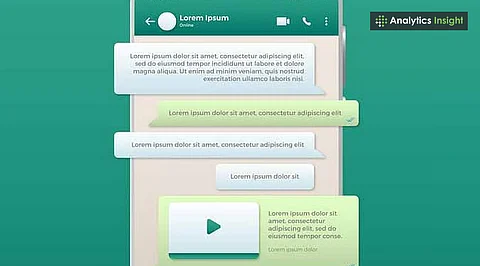

Business messaging apps are vital for real-time, secure communication.
Apps like Slack, Microsoft Teams, and Zoho Cliq offer powerful features.
Choosing the right tool depends on your team’s size, workflow, and privacy needs.
Messaging applications are not only chat apps in the digital era. To enterprises, the apps act as lifelines, facilitating collaboration among teams, task management, and the sharing of up-to-date information.
The appropriate application helps all team members stay on the same page, whether in the office or working remotely. This is an in-depth review of the best messaging apps for business in 2025.
In business, communication is central. According to a report published by Statista, nearly two-thirds of employees use instant messaging in the workplace. Messaging applications can keep the team connected, even with time-zone differences. These business communication tools keep email inboxes organized, facilitate fast decision-making, and boost work productivity.
Slack is a hit among startups and big corporations. It provides rational groupings of various teams, projects, or discussions. Files can be sent, colleagues can be tagged, and other tools, such as Google Drive, Zoom, and Trello, can be integrated.
Slack supports message search, custom emojis, and bots as well. The basic version supports small teams, while the paid plans offer expanded features, including enhanced security and user control.
Why it works
Clean, user-friendly interface.
Great for collaboration.
Excellent third-party app integration.
Microsoft Teams is ideal for businesses that use Microsoft 365. It integrates chat, video calls, file sharing, and collaborative editing. Groups can set up channels, conduct virtual meetings, and collaborate on documents in real time.
It is characterized by its close compatibility with Word, Excel, PowerPoint, and Outlook. It also provides powerful administration and security to enterprises.
Why it works
Perfect for Microsoft Office users.
Built-in video conferencing.
Highly secure.
Also read: How to Move from Skype to Microsoft Teams
Google Chat is Google’s answer to team communication. It comes as part of Google Workspace. Teams can message, share files, and utilize innovative suggestions to expedite replies.
It integrates seamlessly with Gmail, Google Meet, and Calendar. Small teams that already use Google’s ecosystem will find it especially useful.
Why it works
Free with Google Workspace.
Smart AI-powered suggestions.
Integrates with other Google apps.
Zoho Cliq is a lesser-known yet powerful messaging tool that offers text chat, video calls, task management, and file sharing. One standout feature is the ability to create workflows and bots using low-code tools.
It’s budget-friendly, making it a top pick for small businesses and startups. It also supports searchable chat history and role-based permissions.
Why it works
Affordable pricing.
Strong workflow automation.
Ideal for startups.
Twist by Doist takes a different approach. It focuses on asynchronous communication. Messages are threaded like emails, which helps avoid chaos in busy team chats.
It’s useful for remote teams that operate in different time zones. The calm interface encourages deep work without constant pings.
Why it works
Threaded conversations.
Great for remote teams.
Reduces distractions.
Also read: Signal vs Telegram vs WhatsApp: Which is the Best Encrypted Messaging App?
These are the best messaging apps for business so far in 2025. Messaging apps have become an essential part of the modern workplace. These team chat apps accelerate collaboration, minimize misunderstandings, and bring teams closer together, regardless of their location.
From feature-rich giants like Microsoft Teams and Slack to flexible, budget-friendly tools like Zoho Cliq, there’s an app for every business. The best part? Most secure messaging apps offer a free trial. It’s easy to explore what works before making a commitment.
Businesses that adopt these workplace messaging tools will experience faster communication, enhanced teamwork, and increased efficiency. As work becomes more digital, the right messaging app is no longer a luxury; it’s essential.
